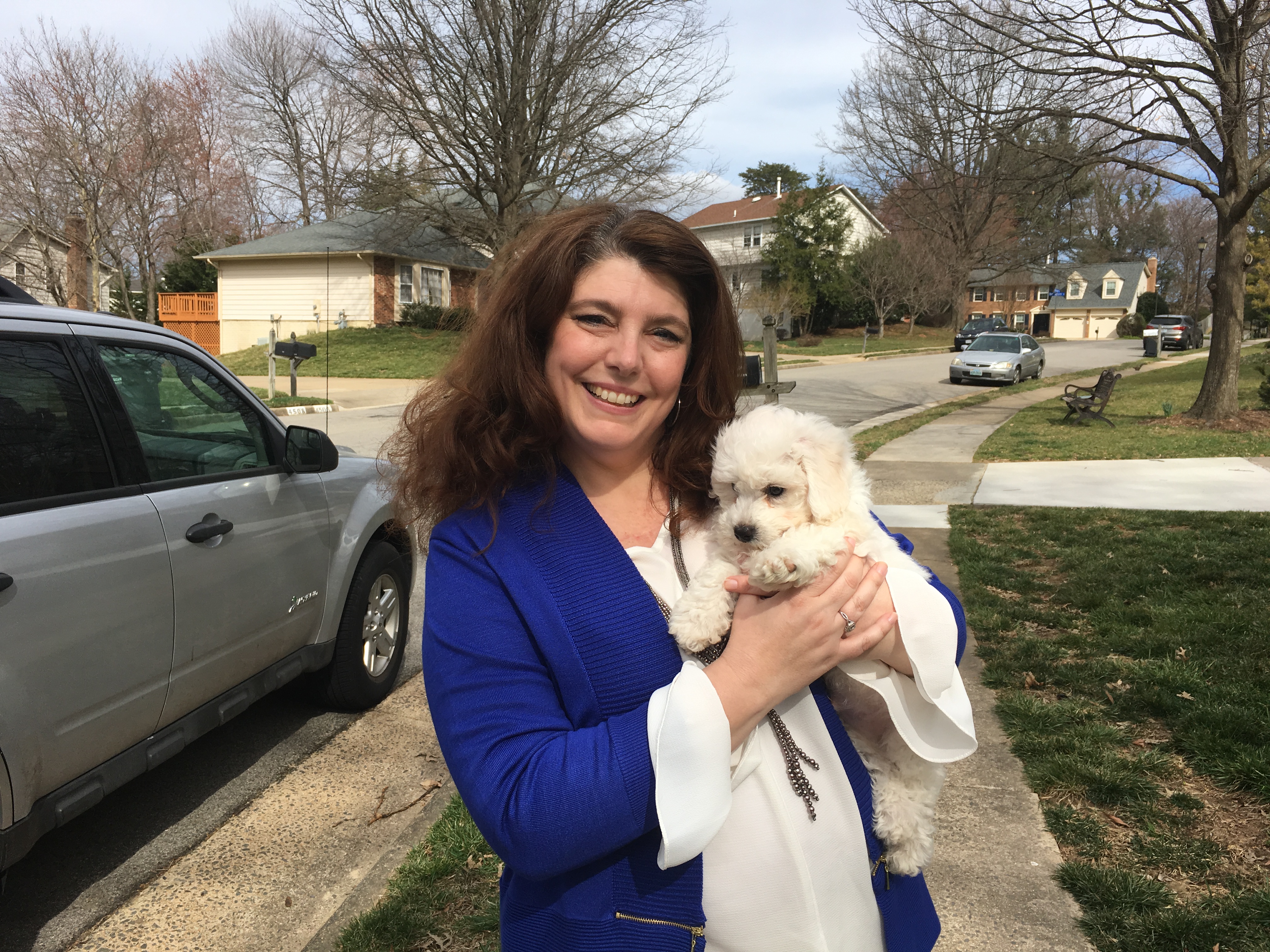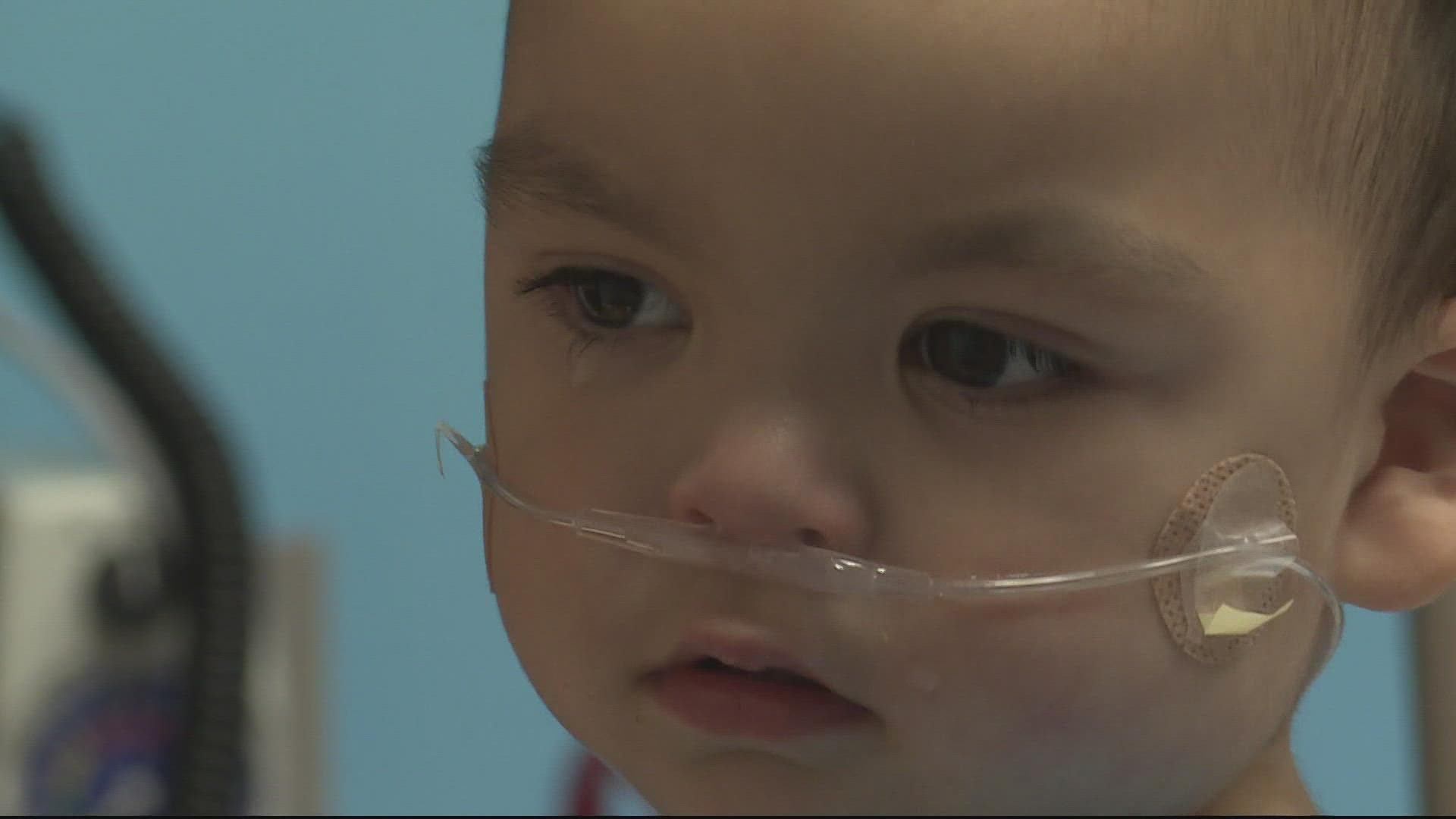Burke, Va. -- Keeping up with a precocious puppy, just like keeping up with any baby, takes stamina. These days Lynn Hunter runs around on a daily basis with her puppy, Grimly. But several years ago, after her third child was born, Lynn had not lasting stamina at all.
Hunter says, "The doctors at my hospital handed my newborn baby and my 3 year old and my 5 year old to my husband and said meet her at the other hospital. She's in heart failure.
It was post-partum cardiomyopathy, a temporary heart failure after surgery. Usually patients bounce back, but Lynn didn't.
Hunter says, "I was retaining fluids, my organs were not processing, not able to breathe. I was completely shutting down."
Lynn had an atrial septal defect, a hole in her heart. ASD, A common congenital defect in children and adults, is relatively easy to correct. But the procedure never happened. Tests showed the real problem was hypertrophic cardiomyopathy.
"I had never heard those two words before," says Hunter.
Dr. Christopher O'Connor is the CEO and Executive Director of the Inova Heart and Vascular Institute, he says, "(Hypertrophic cardiomyopathy) is related to a mutation in one of ten different genes. And it's the number one cause of sudden death in people under the age of thirty."
"Our understanding of genomics in cardiology is really starting to explode. We're following the path on oncology whose done a great job in moving the field forward using genomics to predict disease progression and to target therapies," adds Dr. O'Connor.
Lynn was 31 when she experienced heart failure, but she had actual symptoms almost her entire life. She just didn't know it.
Hunter says, "When you are young, you are often misdiagnosed as having exercised induced asthma, which is what I was diagnosed with as a kid. And then as I was a teenager, I started having kind of blackouts. Not fully losing consciousness, but I was having them on a regular basis."
Understanding the devastating consequences for her own family if HCM goes undiagnosed and untreated, Lynn sought answers from a genetics counselor.
Hunter says, "I needed to know going forward for future generations where this is from, who has it and how do we treat it."
Lynn had the gene mutation and was treated for nearly a decade with beta blockers. Then she had in-stage congestive heart failure, while and active duty airman stationed in Italy.
"I was in bed for eight months and the Italian doctors basically said, 'this is your fate, go home and deal with it,'" recalls Hunter.
The Air Force sent Lynn back home to "get fixed". She met with cardiologists at Inova and soon was on the transplant list. Two months later she received a new heart.
Now thanks to genomics, should HCM be diagnosed, Lynn and her family are more confident they'll get the right kind of care.
Hunter says, "It's a horrible disease, if you can get treatment early and it's managed throughout your life, you can have a great chance of living a long, normal, healthy life."
"This is really important in cardiology because, as you know, cardiovascular disease is the number one killer in modern civilization," adds Dr. O'Connor.


